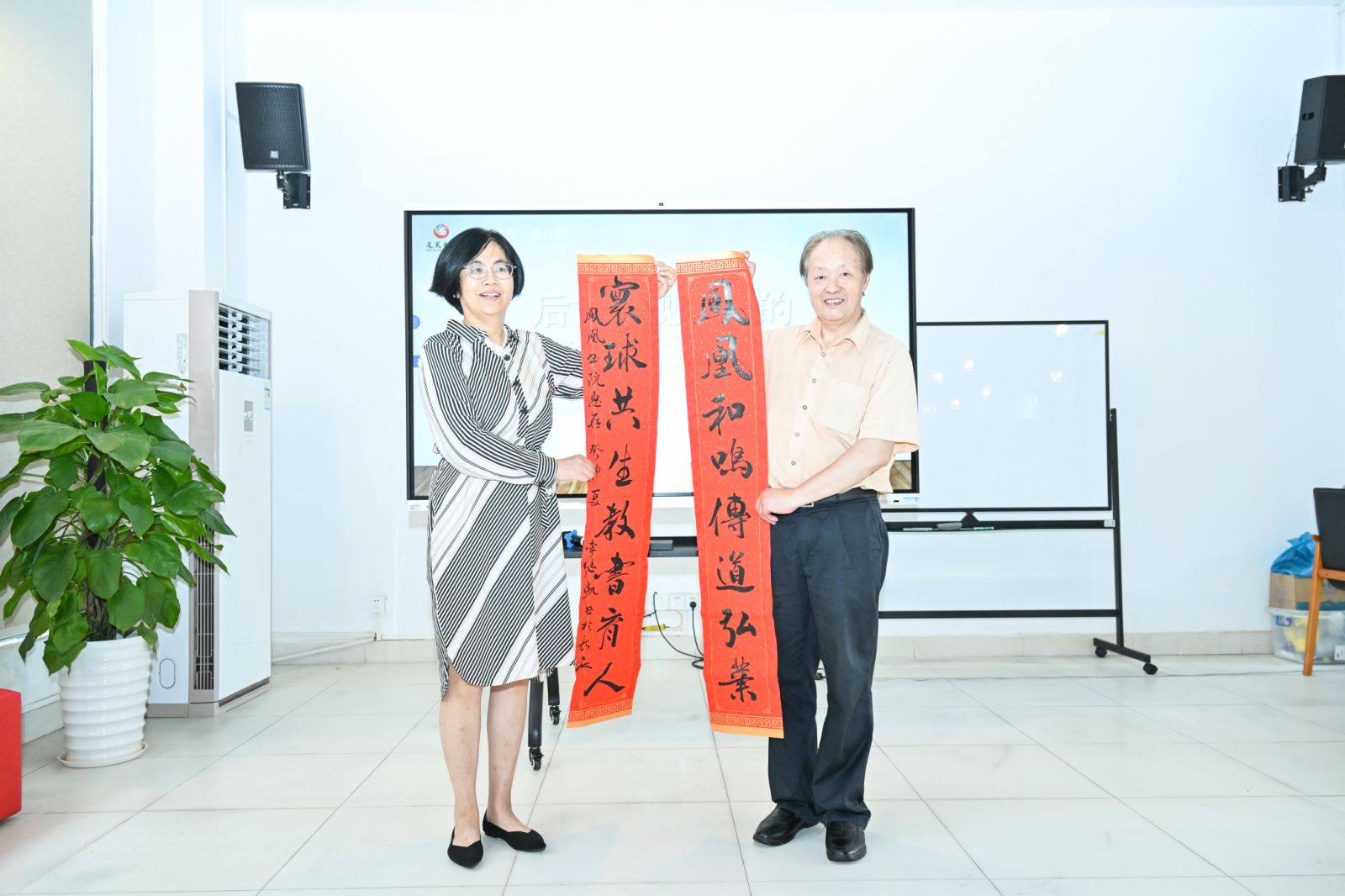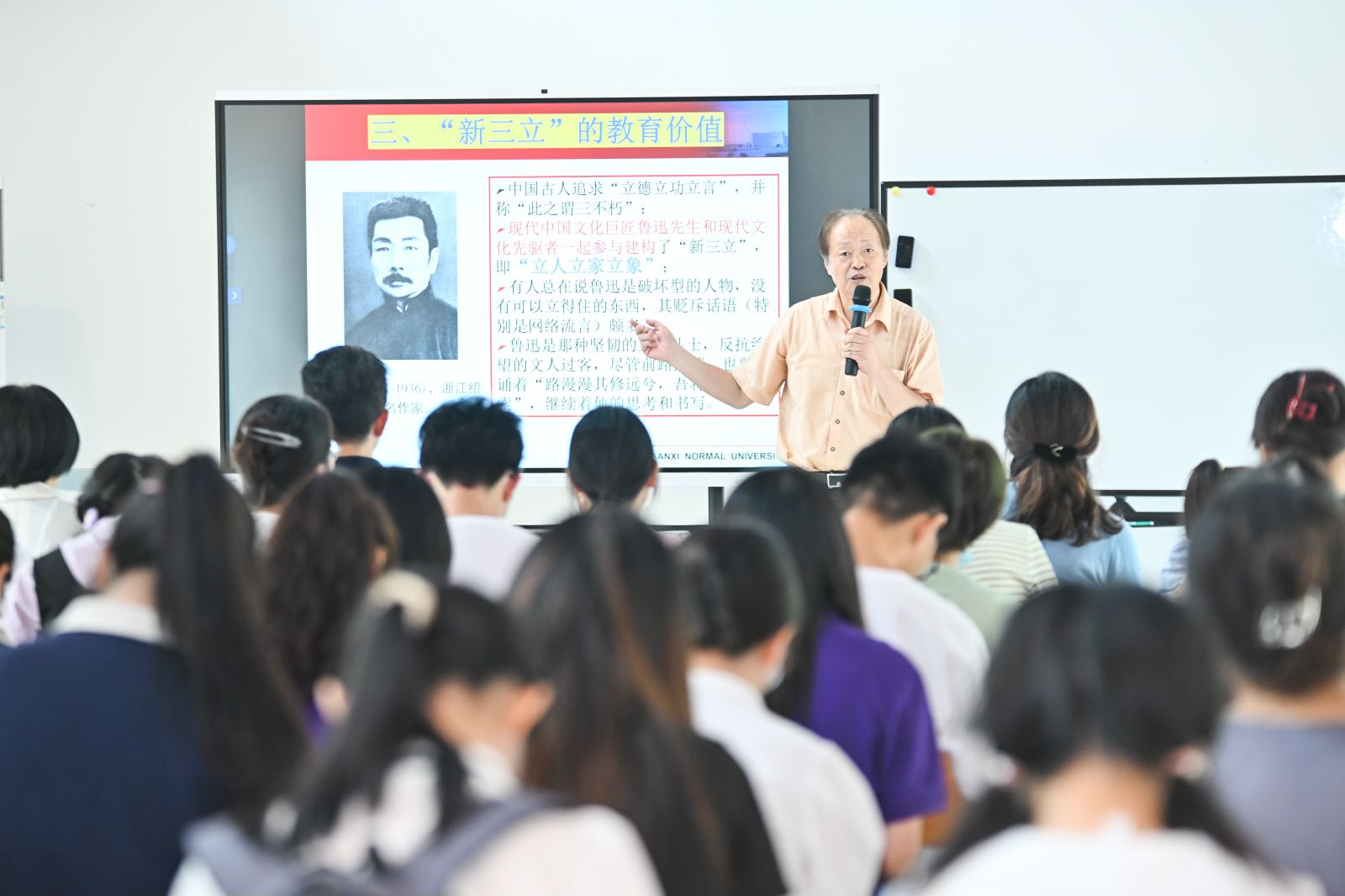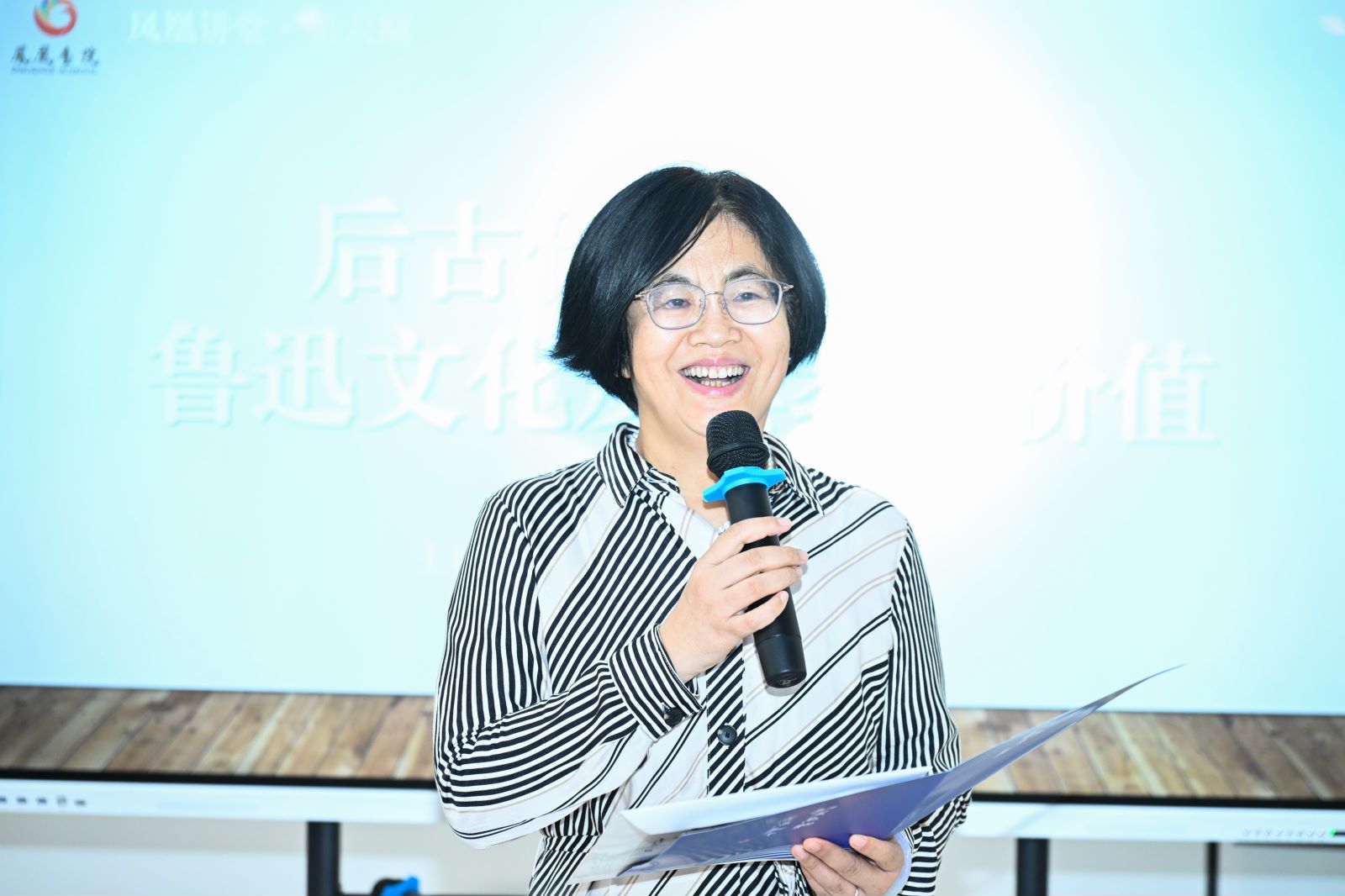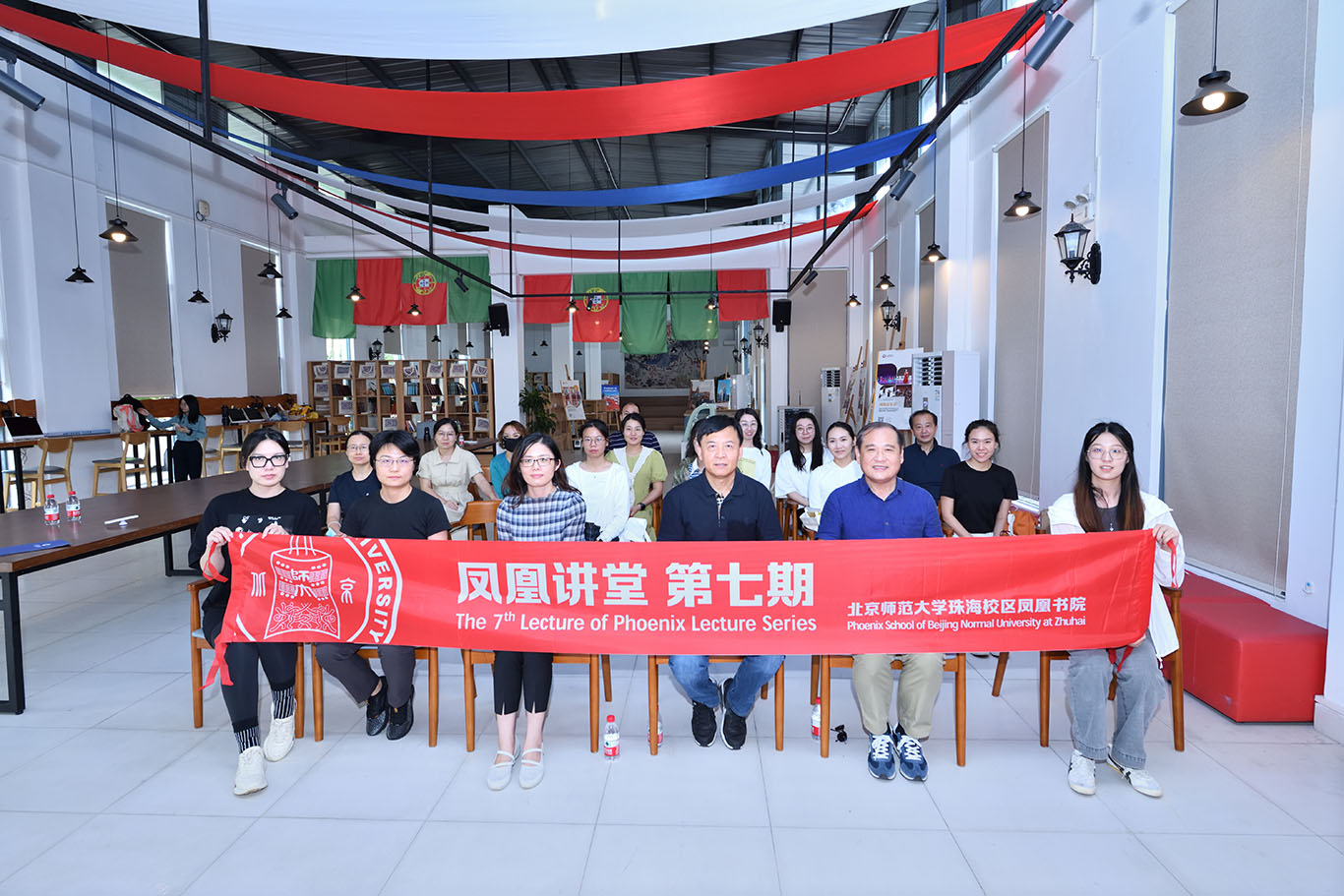
From June 15th to 16th, 2023, Phoenix School held the BNU Phoenix Forum (2022) successfully. As an integral part of this forum, Phoenix Lecture VI and Phoenix Lecture VII were held concurrently, focusing on relevant topics such as "international education" and "Chinese language education."
01
Phoenix Lecture VI
Review on the Lecture “Lu Xun Culture and its Educational Value in the Post-ancient Perspective”
At the beginning of the lecture, Prof. Li Jikai presented a piece of calligraphy to Phoenix School with the inscription, "Phoenixers Harmonize to Spread Truth and Knowledge,Teaching and Educating on a Global Basis." He expressed his delight at being invited to participate in the BNU Phoenix Forum (2022) held on June 15th by Phoenix School. He praised Phoenix School for organizing high-level international forums and expressed his expectations and good wishes for the future development of Phoenix School. Prof. Chen Xi welcomed and extended her gratitude to Prof. Li Jikai for coming to BNU Zhuhai to deliver a lecture to the faculty and students of the school. She also introduced Prof. Li's academic research experience and achievements to the students.

Prof. Li Jikai organized his academic lecture from four aspects: the conceptualization of “post-ancient” and “cultural integration,” Lu Xun's writing behavior and cultural creation, the educational value of the “New Three Literacies” (Establishment of a man, Establishment of a family and Establishment of an image) proposal and the development approach to Lu Xun culture’s integration and innovation. Firstly, Prof. Li Jikai discussed the formation and evolution of the cultural integration trend in the context of grand modern literature. Starting from the cultural integration in the May Fourth Movement, he elucidated the positive constructive role of this integration in the development of new literature and the literature of the new era. Using Mr. Lu Xun as an example, he highlighted the outstanding contributions of numerous cultural experts and literary masters in cultural creation.

Prof. Li Jikai started from introducing Lu Xun's writing behavior and pointed out that every stroke and every piece of work left by Lu Xun, especially those precious ink marks known as "Lu Xun Style," is written cultural heritage and full of his rich life experience, manifesting a kind of immortal "influencing factor’s" power, and shaping the image of a giant devoted to the creation of modern culture.
Next, Prof. Li Jikai started by discussing the "Three Immortalities" in ancient China, which refers to the "Old Three Literacies" of the ancient Chinese literati, namely, "Establishment of virtue, Establishment of contribution, Establishment of words." He also explained Lu Xun's "New Three Literacies" theory, and the specific meanings of “Establishment of a man,” “Establishment of a family” and “Establishment of an image.” However, Professor Li critically pointed out that Lu Xun's concern for the public, country, and national fortune surpassed his concern for individual lives. This dedication forged an immortal spiritual life and cultural monument, creating an admirable state of life guided by the "New Three Literacies." However, it led to a neglect of the self to a large extent.

Subsequently, Prof. Li explained the development approach to cultural integration and innovation of Lu Xun culture. He pointed out that Lu Xun's emergence reflects the construction pattern and development direction of the Chinese "New Culture" movement in the modern times. Many of his seemingly radical cultural criticism discourses are actually implicit "cultural strategy" and "cultural rhetoric," demonstrating the process and principles of cultural integration. By researching Lu Xun from the perspective of cultural integration, we can discover a “cultural Lu Xun,” who may appear to have a cultural bias but actually possessed a broad cultural horizon, which allows us to appreciate his "grand modern" cultural outlook that emerged from cultural integration.

Finally, Prof. Chen Xi summarized the lecture by commenting that Prof. Li's cutting-edge awareness and contemporary concerns in his research on Lu Xun Culture inspired his audience to think deeply. It is of great enlightening significance for the academic innovation consciousness and research methods for the teachers and students who attended the lecture. She expressed her sincere gratitude to Prof. Li for his excellent lecture, which was a complete success.
02
Phoenix Lecture VII
Review of the Lecture, "Teaching and Learning of Grammar in Country-specific International Chinese Language Education through the Lens of the Neutral Structure of Chinese Language"
On the afternoon of June 21st, 2023, Phoenix Lecture VII was successfully held at Phoenix Language Village, Nanxi Garden, BNU Zhuhai. The lecture was delivered by Prof. Liu Lening, Director of the Chinese Department at Columbia University, USA, as the keynote speaker and themed around "Teaching and Learning of Grammar in Country-specific International Chinese Language Education through the Lens of the Neutral Structure of Chinese Language." Prof. Chen Xi, Director of International Education Affairs at BNU Zhuhai and Dean of Phoenix School, who attended the lecture, welcomed and thanked Prof. Liu Lening for delivering a high-level academic lecture to the teachers and students of BNU Zhuhai. Prof. Zhou Jian from the Center for Linguistic Sciences of the Institute of Advanced Studies of Humanities and Social Sciences at Beijing Normal University presided over the lecture.


Prof. Liu Lening introduced the definition of grammar, how to determine the contents of grammar teaching, and how to implement grammar teaching, as well as the nature of language and its relationship with language acquisition, highlighting the three key terms "grammar," "teaching and learning of grammar," and "country-specific." He explained the different definitions of grammar by various schools, including Chomsky's grammatical thought, formalist syntax, the American functionalist school, the Australian systemic functionalist school, and constructive grammar. He then pointed out that the teaching and learning of grammar must provide a systematic description of the structure and function of the target language, with sufficient attention to semantics and pragmatics. It should help students acquire the ability to select the correct language forms to express the intended meaning in specific contexts. To achieve this, the teaching and learning of grammar must draw on the latest and best linguistic research results and transform them into grammar presentations, explanations, and consolidation exercises suitable for language teaching in the classroom.

Furthermore, by drawing on numerous examples from teaching practice, Prof. Liu Lening elucidated that learners of the target language with a different first language background encounter different difficulties in learning, and the facilitation provided by teachers from different countries should also vary. Thus, narrow contrastive analysis of learner acquisition bias and errors is indispensable.

Lastly, Prof. Liu Lening pointed out that country-specific educational goals and language teaching standards in terms of international Chinese language education should be established for different countries and regions. Relevant teachers should treat it as a kind of mutual learning and complementary behavior. Chinese language education should also be seen as a folk activity. He concluded that the internationalization of Chinese language education is first and foremost reflected in language differentiation. The establishment of the teaching and learning of grammar in line with language-differentiated international Chinese language education must include the following steps: 1) Conduct a comparative analysis between Chinese and learners' first language under the guidance of learner acquisition bias and error analysis. 2) Draw on the latest and best theoretical linguistics research results. 3) Transform the theoretical linguistics research findings. 4) Determine teaching contents and activities under the guidance of teaching and learning of grammar. Language teaching should take a multi-lingual stance, starting from language research itself, making reasonable use of learners' knowledge of their first language or other languages, and fully utilizing teaching methods such as translation and explanation.

In the final section of the lecture, teachers and students, Prof. Zhou Jian, and the keynote speaker engaged in extensive and in-depth interactive discussions on the impact of thinking and cultural differences on language teaching and learning, the relationship between language teaching and cultural experience, the accuracy and fluency of learners' language performance, Chinese word formation and style, and other related issues. The lecture concluded successfully.
Translator: Yan Li
Proofreading: Martin Wittenberg